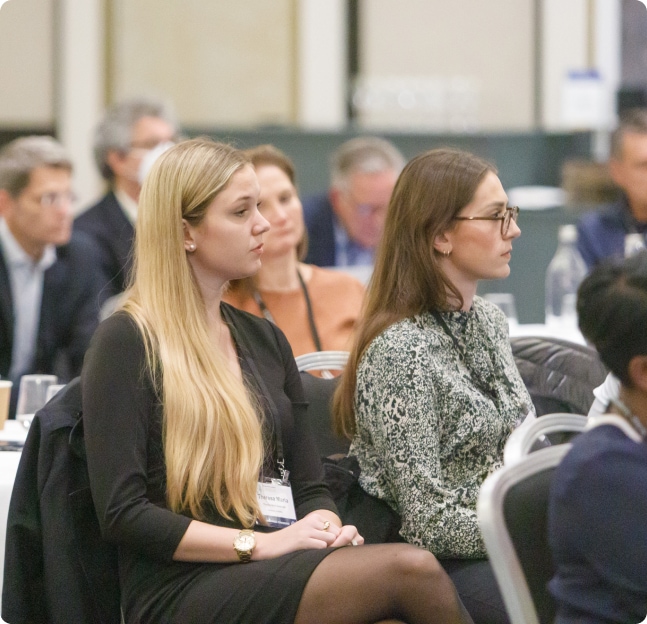SRF Mission
The Strategy Research Foundation advances the vision and mission of the SMS by creating inclusive funding initiatives that support strategy scholars around the world in conducting rigorous and business relevant research.
The goals of the SRF include:
- Ensuring the advancement of the field of strategic management by supporting research that stimulates positive, effective, and responsible action on the part of organizations worldwide.
- Inspiring and investing in the development of the next generation of strategy scholars.
- Fostering and encouraging participation in strategic management research with the understanding that diversity, equity, and inclusion elevate all.
- Disseminating knowledge and creating public awareness of solutions created with the support of SRF funding initiatives.
SRF Leadership

Mahka Moeen
University of Wisconsin
SRF Co-Chair

Francisco Polidoro
University of Texas at Austin
SRF Co-Chair

Giada Di Stefano
Bocconi University
WMDRG Program Director

John Mawdsley
HEC Paris
WMDRG Associate Program Director

Jackson Nickerson
Washington University in St. Louis
RSM Program Director
Funding & Programs
SRF provides $150,000-200,000 USD annually to scholars in the field of strategic management. Funding from SRF programs is meant to complement additional funding sources for the research.
SRF operates two competitive grant programs: the Research in Strategic Management Program (RSM) and the Will Mitchell Dissertation Research Grant Program (WMDRG), which is named to honor Professor Will Mitchell in recognition of his contributions to SMS and the education of doctoral students in strategic management.
The RSM program supports faculty research on a rotating set of themes central to the field of strategic management with grants of up to $25,000 USD. For 2023 and 2024, the theme is “New Thinking in Corporate Strategy Research.”
The WMDRG program supports doctoral student dissertation research in the field of strategic management with grants of up to $10,000 USD.

Recipients
Since its founding in 2011, the SRF has provided funding to almost 150 scholars, supporting research on a variety of topics within the field. Learn more about these scholars and their research.